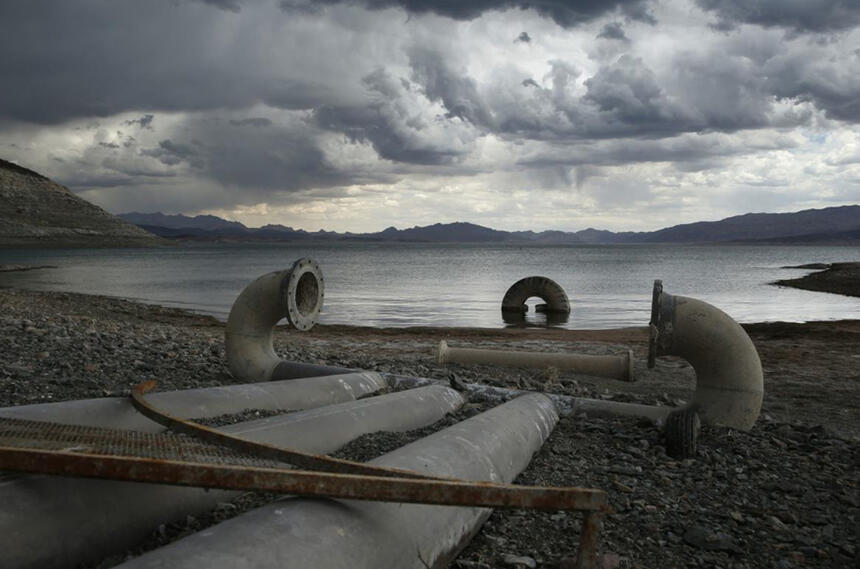
Lack of Arizona drought plan would mean chaos and uncertainty, water experts say
Published on
The Arizona Daily Star reported that water experts are predicting chaos for Arizona if the Legislature fails to approve a drought contingency plan for the Colorado River.
U.S. Bureau of Reclamation Commissioner Brenda Burman has warned that if all seven states don’t adopt drought plans by Jan. 31, she’ll start a process leading to a decision by August as to how to best run the river to protect the reservoirs from catastrophic declines.
Prospects for Arizona’s Legislature to adopt a drought plan by Thursday remain unclear.
The Arizona Department of Water Resources and the Central Arizona Project board have endorsed the language of a resolution that would amount to legislative approval of the $100 million-plus plan for Arizona to leave up to nearly half its CAP water supply in Lake Mead.
Farmers won’t be the only Arizona water users to suffer without a drought plan, said Kathy Ferris, chief counsel for the Arizona Municipal Water Users Association and a former director of the Arizona Department of Water Resources.
If the feds do take over management of the Colorado, any cuts made within Arizona will likely follow the system of priorities laid down in 2007 guidelines, she said. Those cuts would slash at the Arizona Water Bank, which now salts away unused CAP water underground to be used later.
Developers would also be hurt because the cuts would take away water that’s now recharged into the ground to compensate for groundwater pumped out for new subdivisions. Also on the future chopping block would be a class of CAP water that is sold to tribes.
“Water planners want certainty. If you don’t know what your water supply is because there is not a formal agreement in place, you have uncertainty. That creates problems for people trying to insure the reliability of our water supply,” said Ferris, who is also a senior fellow for Arizona State University’s Kyl Center for Water Policy at Morrison Institute.
“It also creates public perception problems. We live in a desert. We already get criticism — ‘why are we there?’ If we don’t take steps to manage our Colorado River supply, we look worse,” said Ferris, adding that a bad perception of Arizona among investors outside the state would hurt future economic development.
READ THE NEWS